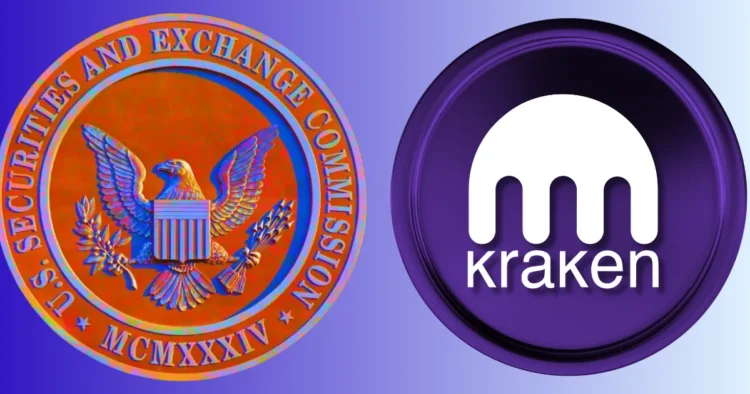In a significant legal development, California District Court Judge William Orrick has rejected Kraken’s attempt to appeal an earlier decision that permits the U.S. Securities and Exchange Commission (SEC) to proceed with its lawsuit against the cryptocurrency exchange. This decision, made on November 18, underscores the legal complexities and challenges that cryptocurrency platforms face under current regulatory frameworks.
Understanding the SEC’s Allegations Against Kraken
The SEC’s lawsuit centers around allegations that Kraken engaged in the sale of unregistered securities through the trading and selling of various crypto assets. According to the SEC, these assets, which include ADA, ALGO, ATOM, FIL, FLOW, ICP, MANA, MATIC, NEAR, OMG, and SOL, qualify as investment contracts under the Howey test, a legal standard used to determine what constitutes a security. Judge Orrick concurred with the SEC’s perspective, stating that the regulator had sufficiently substantiated its claims. To fully evaluate whether Kraken’s operations are compliant, a detailed discovery process will be necessary.
Kraken’s Legal Arguments Rejected
In September, Kraken attempted to appeal the August ruling that dismissed its motion to have the SEC case thrown out. The exchange contended that there were unresolved questions regarding whether an investment contract necessitates formal agreements or post-sale obligations. Moreover, Kraken argued that there was potential for varied interpretations of securities laws that should be addressed by a higher court. However, Judge Orrick dismissed these arguments, emphasizing that no court since the Howey decision has required contractual formalities or post-sale obligations as prerequisites for an investment contract. He further pointed out that multiple courts have already refuted Kraken’s legal stance.
SEC Tightens Its Case
The SEC has recently moved to strike down three of Kraken’s defenses, arguing that the current laws clearly define what constitutes an investment contract and that Kraken was sufficiently informed about compliance requirements. The regulator asserted that Kraken’s defenses could result in unnecessary and burdensome discovery efforts, a concern that Judge Orrick seemed to consider in his ruling.
Background of the Case
The SEC’s lawsuit, filed in November 2023, accuses Kraken of not registering as an exchange, broker, dealer, or clearing agency. The ongoing litigation aims to determine whether Kraken’s cryptocurrency operations violate securities laws. The outcome of this case could have significant implications for the wider crypto industry, potentially reshaping how crypto exchanges operate in the United States.
What Next?
Despite facing regulatory challenges, Kraken is moving forward with plans to launch its own blockchain, known as “Ink,” in early 2025. This initiative aims to serve both retail and institutional users, marking a strategic expansion of Kraken’s services. As the legal proceedings continue, Kraken has yet to issue a public response to the judge’s latest decision. This case remains a pivotal legal battle in the SEC’s broader enforcement efforts against cryptocurrency platforms, and its progress is being closely watched by industry stakeholders and legal experts alike.











